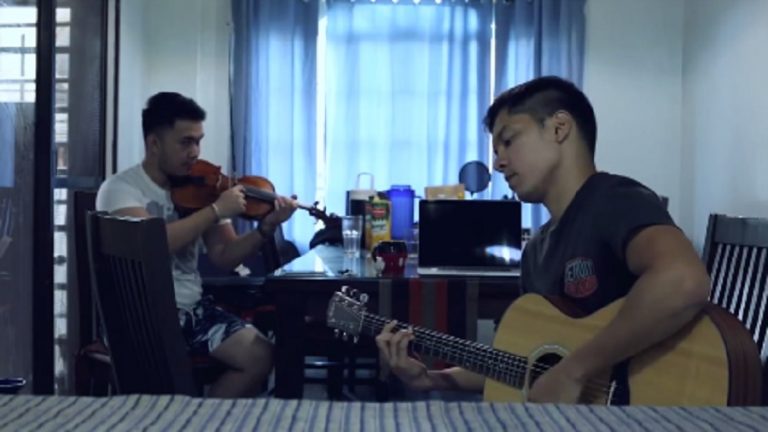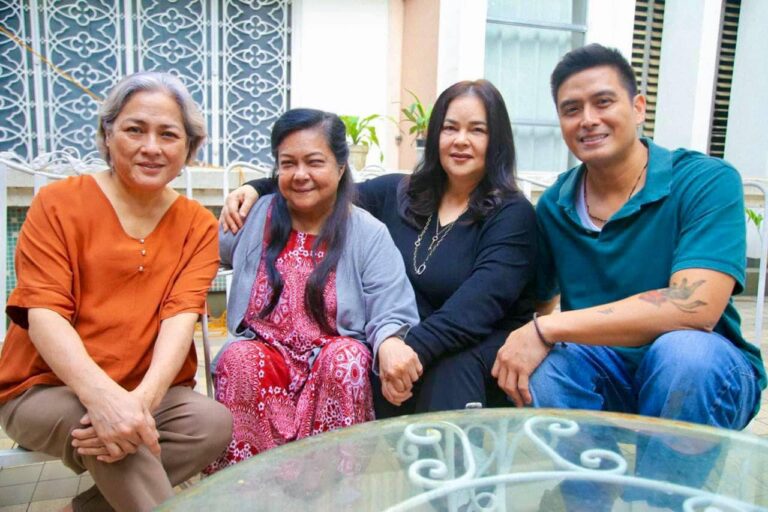Following a lengthy four-year legal battle, Pauline Basilides, a beauty entrepreneur and overseas worker based in Australia, has achieved victory in her case against Aira Jane Barredo, also known as Ayyang, owner of Miss Ayyang Thai Beauty Shop on social media platform TikTok. The court verdict found Barredo guilty of cyberlibel, providing Basilides with a sense of justice and closure after years of emotional distress.

Australia-based entrepreneur Pauline Basilides and her lawyer Atty. Johnrey Villablagon
In an intimate interview with the media, Basilides shared how the allegations had taken a toll on her life. She emphasized the importance of being cautious in online business dealings and friendships, especially in social media environments. “’Yung victory po yun na meron na parang ako nabunutan po ako ng tinik. Kasi nagkaroon po ng justice,” she said. “…Tama nga po na nag-file ako ng case. Kasi may hustisya.”
The legal conflict stemmed from online accusations where Barredo, a fellow online seller and distributor, was accused of spreading false information that damaged Basilides’ reputation. Basilides explained their relationship, which started as business acquaintances in 2019 before developing into friendship. She noted that she even helped Barredo during her vehicle repairs, spending her own time and resources without expecting anything in return.
“Lahat ng suporta, oras, lakas, pera, ibinigay ko nang buong puso sa kanya. Wala akong hinihinging kapalit. Tumulong ako dahil sabi niya gusto niya makaahon sa buhay,” Basilides detailed, “At dahil sa kuntento na ako sa kung anong meron ako, handa ako magsakripisyo para sa kapakanan niya.”

However, her generosity was met with false accusations of being a scammer, leading to an alleged viral social media smear campaign that affected her personal life and business. “Sa lalim po ng pinagdaanan po sa kanya, sa sakit na pinagdaanan po sa kanya. At the end of the day, may pinanghahawakan ako na na guilty siya,” Basilides said.
The court’s decision, which labeled Barredo guilty of cyberlibel in December 2021, was a relief for Basilides who wishes to serve as a reminder for others to exercise caution online. “Just one post can destroy a person, the more if you are an influencer,” Basilides’ Atty. Johnrey Villablagon reminded. “Once you cross that line, there are consequences.”
“Just one post can destroy a person, the more if you are an influencer,” Basilides’ Atty. Johnrey Villablagon reminded. “Once you cross that line, there are consequences.”
Basilides expressed her plans to rebuild both her personal and professional life, starting anew in the online business industry. “Feeling ko mag-start up from the beginning kasi talagang nagli-learn ako sa online business,” she shared.
Despite the pain, Basilides remains hopeful. “May justice na akong nakuha,” she said. “Ang sarap sa feeling na makuha ang justice.” Basilides and her lawyer pointed out how difficult it is to win a cyberlibel case (many get dismissed) and getting a “guilty beyond reasonable doubt” verdict is considered a major achievement for them.
Atty. Villablagon’s message emphasizes the need for responsibility and mindfulness when engaging in social media activities, reminding everyone that malicious online actions can have serious consequences. “Hindi lang tayo basta click or post nang post. We have to keep in na within the bounds of the law ang ipinopost natin,” the lawyer added.
“Hindi lang tayo basta click or post nang post. We have to keep within the bounds of the law ang ipinopost natin,” the lawyer added.
Basilides’ victory is proof of her resilience and belief in justice. “At the end of this long battle, I know I’ll get the justice I deserve,” she concluded, encouraging others to be vigilant and cautious in their online dealings and public posts.
Random Research:
Here are some important notes and definitions on cyberlibel in the Philippines, with Respicio & Co. as source:
- Legal Framework: Cyber libel in the Philippines is primarily governed by the Revised Penal Code (RPC) and the Cybercrime Prevention Act of 2012 (RA 10175). The RPC defines libel as a crime against honor, while RA 10175 criminalizes libel committed through ICT.
- Scope: Cyber libel involves defamatory statements made online via social media, blogs, websites, messaging apps, etc. It carries more severe penalties than traditional libel due to increased sanctions under RA 10175.
- Elements:
- Imputation of a discreditable act or condition
- Publication (made public via the internet)
- Victim’s identifiable identity
- Presence of malice (actual or presumed)
- Distinction from Traditional Libel:
- Medium: Online platforms vs. print/electronic media
- Penalties: Cyber libel penalties are typically one degree higher, with possible longer imprisonment
- Jurisdiction: Courts in the Philippines generally have jurisdiction if the content is accessible in the Philippines or caused harm there
- Important Jurisprudence:
- Disini Jr. v. The Secretary of Justice (2014): The Supreme Court upheld cyber libel’s constitutionality, clarifying that only the original author of a defamatory online post can be held liable, not someone who merely shares or “likes” the content unless they contribute to defamation.
- Penalties and Consequences:
- Imprisonment ranges from 6 years to up to 12 years, depending on the law invoked
- Fines and civil damages can also be imposed
- A conviction results in a criminal record affecting personal and professional life
- Filing and Defending:
- Evidence collection includes screenshots, URLs, timestamps, and witnesses
- Complaints can be filed with the NBI or the PNP Anti-Cybercrime Group, then with the prosecutor’s office, leading to court proceedings
- Defenses include truth, privileged communication, lack of identifiability, absence of malice, and prescription
- Civil Aspects:
- Suits for damages like moral, exemplary, attorney’s fees, and litigation costs may be filed alongside or instead of criminal charges
- Practical Tips:
- Verify facts before posting
- Exercise caution and civility
- Keep records of online posts and communications
- Seek legal assistance for case evaluation and representation
- Recent Issues:
- Concerns over free speech versus criminal libel
- Challenges in digital evidence collection and privacy rights
- Expanding scope due to new platforms and extraterritorial liability
- Sources: Respicio & Co. highlight that online defamation laws aim to balance reputation protection with freedom of expression, emphasizing the importance of responsible digital communication.
These notes were taken from Respicio & Co.’s article on cyberlibel laws, elements, jurisprudence, penalties, defenses, and practical considerations in the Philippines. Link here: https://www.respicio.ph/commentaries/cyber-libel-and-online-defamation-legal-assistance
Random Reminders:
To reduce the risk of committing cyberlibel while promoting responsible online behavior, the source recommends the following five tips:
- Verify facts before posting: Always confirm the accuracy of your information and sources before sharing or publishing allegations online to prevent spreading false or defamatory content.
- Exercise caution in commentary: When discussing public figures or sensitive issues, ensure that your statements are factual, respectful, and based on reliable evidence, avoiding unsubstantiated accusations.
- Maintain civility: Refrain from using insults, name-calling, or inflammatory language that can be considered defamatory or libelous. Practicing respectful discourse helps prevent potential legal issues.
- Keep records: Save screenshots, URLs, timestamps, and any relevant communication as documentation. This can serve as proof of your statements’ context and your intent, especially if disagreements escalate.
- Obtain consent when necessary: Seek permission or ensure there is a valid reason before posting sensitive or potentially defamatory content about third parties, especially related to personal or private information.












